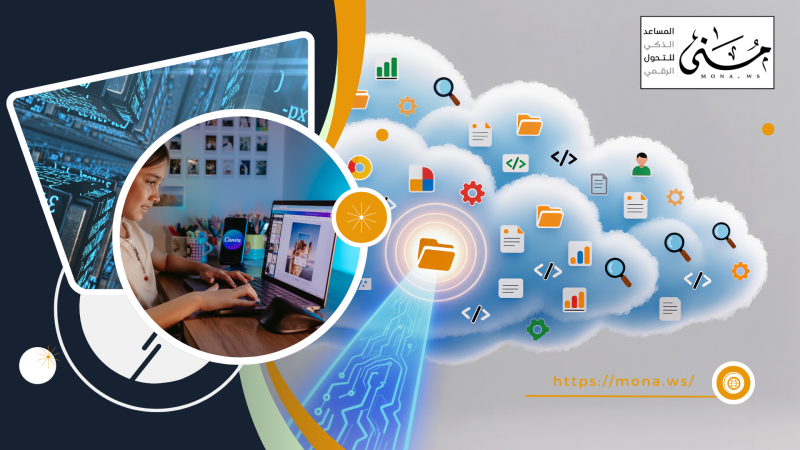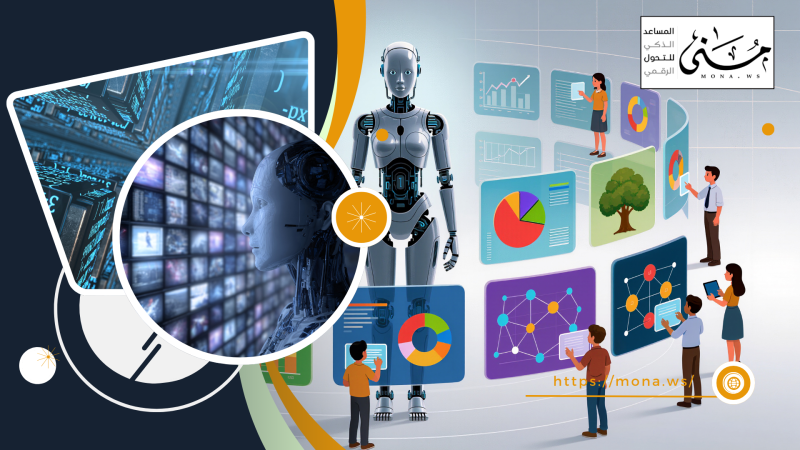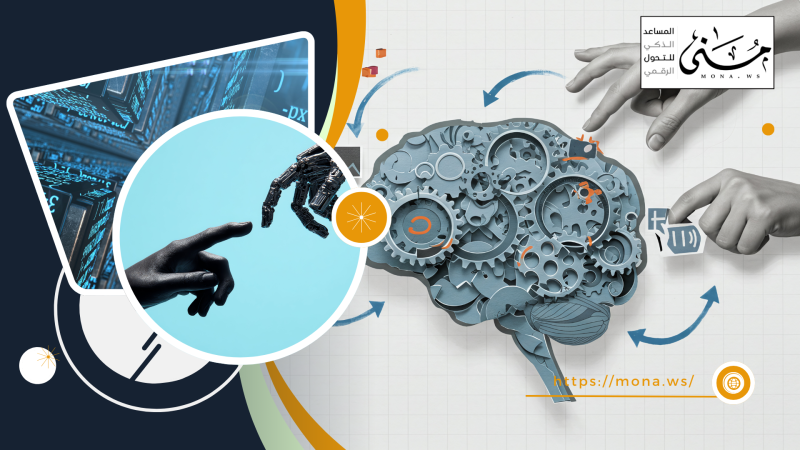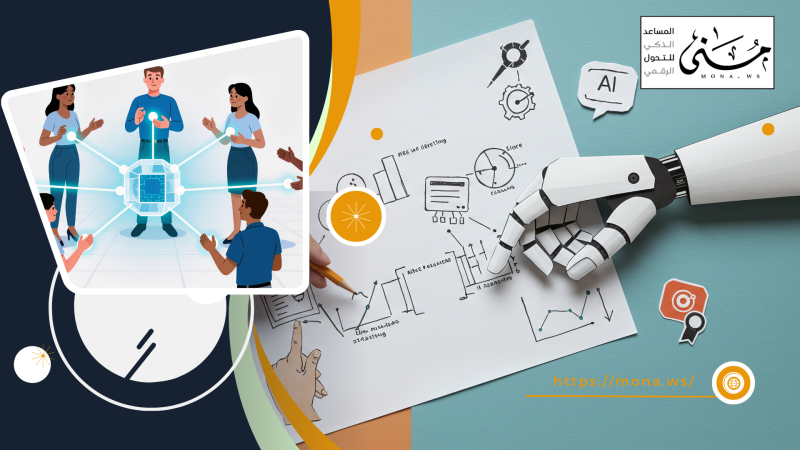The concept of digital transformation has become a fundamental pillar in the development of societies and various sectors, as it refers to the use of technology to enhance operations and services. In the current era, digital technologies have a fundamental impact on daily life, contributing to improving efficiency, facilitating communication, and enhancing innovation in various fields.
Areas of digital transformation:
Digital transformation includes many areas that are witnessing major developments thanks to modern technology, as it contributes to improving efficiency and enhancing user experience. In the government sector, e-government and smart services provide digital solutions that speed up administrative processes and enhance transparency. In the private sector, e-commerce, automation, and artificial intelligence contribute to improving productivity and expanding markets. In education, digital platforms and distance learning have become an essential means of accessing knowledge with flexibility and ease. The health sector is also witnessing important developments such as electronic health records and telemedicine, which improve the quality of medical care. In the financial sector, digital banking services and electronic payments have helped facilitate financial transactions and make them more secure and efficient. This digital transformation reflects the extent to which technology has impacted reshaping various sectors, contributing to improving the quality of life and driving innovation and economic growth.
Government Sector:
Digital transformation in governments is represented by e-government and smart services that facilitate procedures, such as renewing official documents and paying bills electronically, which achieves greater transparency and efficiency in providing public services.
Private Sector:
Companies rely on e-commerce to expand their business, while automation and artificial intelligence contribute to improving productivity and reducing operational errors.
Education:
Distance education via digital platforms has become an effective means of transferring knowledge, providing flexible and accessible learning opportunities for all.
Healthcare:
Digital transformation enables electronic health records, which facilitates access to medical information, in addition to telemedicine that enhances access to healthcare without the need to visit medical facilities.
Financial Sector:
The banking sector is witnessing a digital revolution through online banking and digital payments, which facilitates financial transactions and makes them safer and faster.
Digital transformation in these sectors contributes to improving the quality of life, enhancing economic growth, and driving innovation towards a more advanced and efficient future.
Benefits of Digital Transformation
Digital transformation has become an essential element in the development of modern societies, as it contributes to improving performance and enhancing innovation in various sectors. By adopting digital technologies, organizations and governments can achieve higher levels of efficiency and productivity, save time and effort, and enhance user experience. Digital transformation also contributes to enhancing competitiveness by improving work mechanisms and making decisions based on smart data. As technological developments continue, the importance of adopting digital solutions increases to ensure sustainable growth and achieve the transformation towards a smarter and more flexible future.
Improving efficiency and productivity:
Digital transformation helps automate processes and reduce the need for manual intervention, which reduces operational errors and increases the speed of completing tasks. For example, companies rely on artificial intelligence to analyze data and make more accurate decisions, which contributes to improving overall performance and increasing productivity.
Saving time and effort:
Digital technologies enable tasks to be performed faster and more accurately, reducing the time taken by traditional processes. For example, organizations can use cloud systems to store and access data easily, eliminating the need for paper transactions and saving the effort of employees and customers alike.
Enhancing communication and interaction:
Through digital tools such as email, instant messaging applications, and virtual meeting platforms, communication has become easier and faster, whether within organizations or between individuals and companies. This contributes to improving collaboration between teams, especially in remote work environments, and enhances the ability of organizations to provide faster and more responsive services.
Improving the user experience:
Digital transformations provide personalized services that meet users’ needs more accurately. For example, data analytics and artificial intelligence technologies help provide personalized recommendations on e-commerce sites, making the shopping experience more convenient and smooth. In addition, smart applications and services provide user-friendly interfaces that increase customer satisfaction.
Increasing competitiveness:
Digital transformation helps organizations adopt more advanced strategies, giving them a competitive advantage in the markets. By analyzing big data, companies can understand customer needs and market trends more deeply, enabling them to develop innovative products and services that meet changing demand. In addition, digital transformation contributes to reducing operating costs, allowing organizations to offer competitive offers and attract more customers.
Challenges facing digital transformation
The world is witnessing rapid digital development that has radically changed the way individuals and organizations interact with technology. Digital transformation is no longer just an option, but has become an urgent necessity to keep pace with modern developments and enhance efficiency and innovation in various sectors. By integrating digital technologies into everyday operations, governments and businesses can improve the quality of services, save time and effort, and enhance user experience. However, this transformation faces many challenges, such as cybersecurity and the digital divide, which requires advanced strategies to ensure maximum utilization of its potential.
Cybersecurity and Data Protection:
 التحول الرقمي ليس رفاهية، بل ضرورة حتمية لمواكبة التطور! اكتشف كيف تعيد التكنولوجيا تشكيل حياتنا اليومية
التحول الرقمي ليس رفاهية، بل ضرورة حتمية لمواكبة التطور! اكتشف كيف تعيد التكنولوجيا تشكيل حياتنا اليومية





Comments
Add New Comment